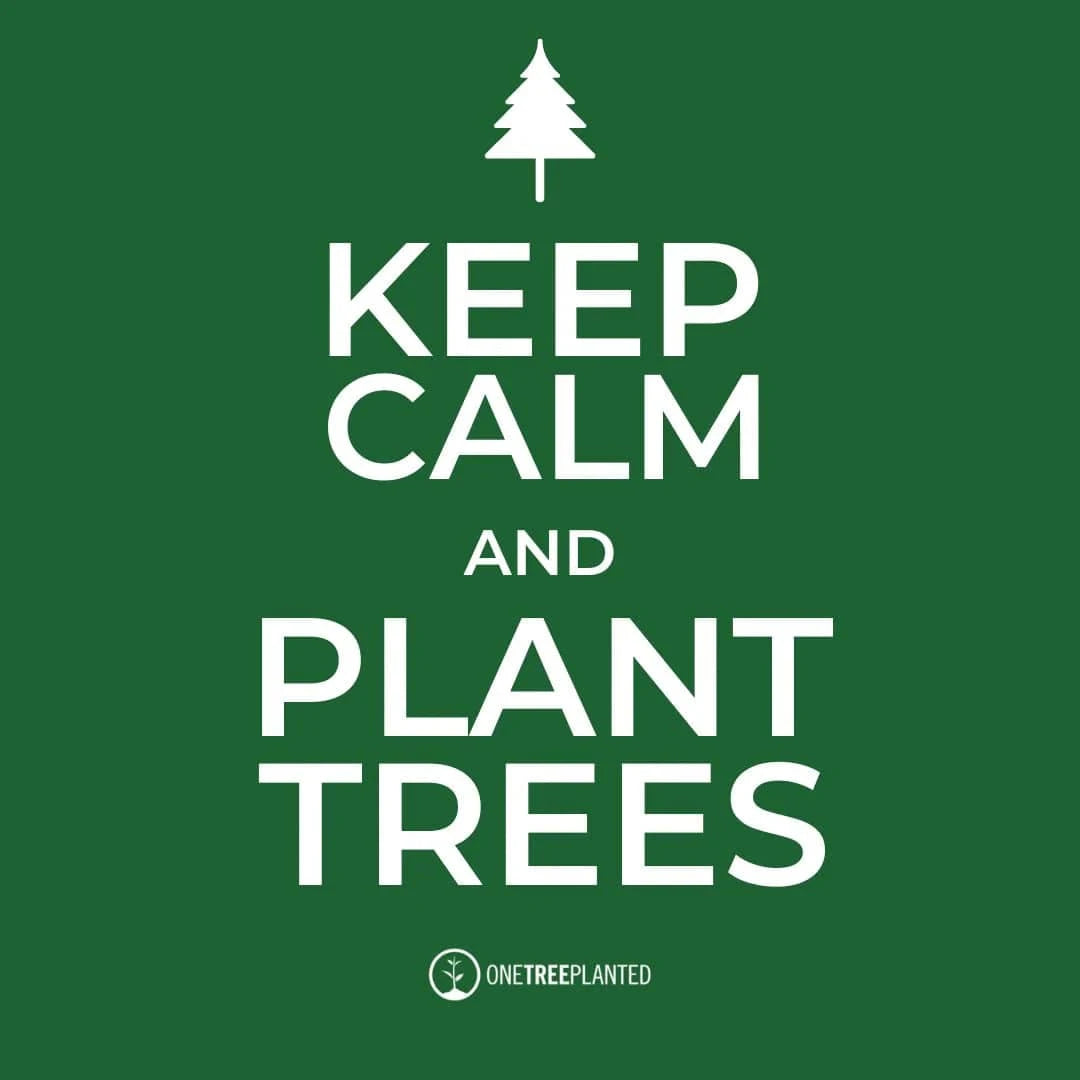Keep Calm and Plant Trees: Lessons from the Coronavirus

Click here to support reforestation
with your company.
Get news, updates, & event Info delivered right to your inbox:
Keep Calm and Plant Trees: What We Learned From the Coronavirus
The last year has been one for the record books, and things may never be quite the same. But while the world was gripped by the Covid-19 pandemic, we couldn't help but feel inspired by the way the global community came together to address the crisis. People everywhere masked up, worked from home, learned how to use Zoom, gained new appreciation for essential workers, spent holidays away from loved ones, and did what they could to help and support each other.
Health and safety were of paramount importance, and we at One Tree Planted worked together with our planting partners to ensure that everyone was taking the necessary precautions to reduce the spread of the virus. But while we were all affected in both our personal lives and professional environments, we couldn't help but make the connection to the health of our planet.
And now that mass vaccination programs are rolling out and restrictions are easing in countries around the world, many of us are thinking about what environmental work will look like in a post-pandemic world. Because as the Coronavirus slowly subsides as a global threat, climate change is only getting more intense — and just as we all came together to address the virus, so too must we come together in force to address the crisis of a rapidly changing climate.

How You Can Help the Environment in a Post Pandemic World
1. Keep Calm and Plant Trees
Reforestation has been recognized as a top climate change solution, and now more than ever we need to work together to restore forests around the globe. When native trees are planted in the right places, they help address climate change by sequestering carbon in their roots, trunks and branches. They also increase climate change resilience by reducing ambient temperatures, slowing the flow of water through landscapes, absorbing pollutants, holding the soil together, providing food and habitat for biodiversity, and more!
2. Create a New Carbon Baseline
Decreased air travel may not have been great for the airline industry, but itwasgood for nature and demonstrated how quickly we could reduce carbon emissions if we treated climate change like the crisis it is. As the world begins to open back up, resist the urge to fly to all the places and consider traveling more sustainably if you can.
3. Enjoy and help to Clean Up the Great Outdoors
The pandemic lockdowns forced many people to reconnect with nature in a big way. After all, most outdoor activities are naturally COVID-safe and helped people to reduce stress and get out of their homes (and heads) even if just for a little while. Although you may no longer have as much time for those long hikes or glorious bike rides, try to get out there as much as you can. And to show your appreciation for Mother Nature's role in keeping you sane over the last 13 months, take a tote bag with you to pick up any trash you find along the way.
4. Eat What You Bought
On average, 30% of the food we purchase is wasted because we often stock up with the best of intentions, only to eat out meal after meal as the lettuce slowly wilts in the fridge. But 2020 saw a lot of us getting reacquainted with our kitchens as restaurants closed down and food costs skyrocketed. And while we encourage you to support your favorite restaurants as they reopen after a really tough year, we hope you'll keep some of those pandemic eating habits with you — like shopping more efficiently, eating at home more often, and actually consuming your leftovers. These simple habits will go a long way in reducing food waste and the methane that results from landfills.
5. Plan Your Next Sustainability Initiative
As the world slowly opens back up, it's a great opportunity to green up (or keep green) every area of your life. Individual actions like composting or recycling are fantastic, but what if you challenge yourself to think bigger? What more can you do with the skills, connections, or resources that you have? Can you give a presentation at your school, initiate a local tree planting, or start a massive campaign geared toward political leaders?
It’s also worth noting that deforestation, pollution, and the consumption of certain wildlife species helps create the conditions in which deadly diseases spread. The more we can restore and preserve biodiversity and adopt common sense consumption practices, the more we can maintain the health of the environment and ourselves. So let's all take what we learned from 2020 to come together and address the ongoing climate crisis — because just like the pandemic, it's not going to get better on its own.
Click here to support reforestation
with your company.
Get news, updates, & event Info delivered right to your inbox:
Related Posts
Plant Your Resolution: Making a Global Impact With The Grove
01/01/2026 by One Tree Planted
Trees & Oxygen: How They Produce It, How Much They Make, and Why It Matters
30/12/2025 by One Tree Planted
Amazon Rainforest Facts & Why It Matters for the Planet
25/12/2025 by One Tree Planted
Popular On One Tree Planted
How to Reduce Waste: 21 Practical Zero Waste Tips for Everyday Living
23/12/2025 by Meaghan Weeden
Inspirational Quotes About Trees
16/12/2025 by Meaghan Weeden
The 9 Oldest, Tallest, and Biggest Trees in the World
11/12/2025 by One Tree Planted
Fundraising Disclosures

Be Part of the Restoration Movement
The Grove is more than just a monthly giving program: it's a vibrant community of individuals who are dedicated to reforestation and environmental restoration on a global scale.





